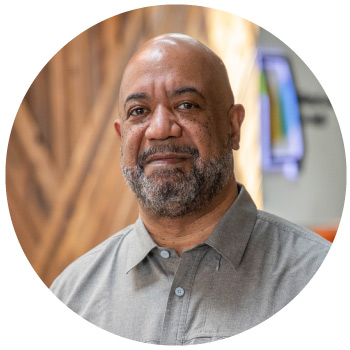
This piece was originally published in the St. Louis American.
Solutions to firearm violence seem elusive even under the best of circumstances, and yet, in 2021, we witnessed something quite promising – a 26% drop in homicides in the city of St. Louis. Though there are many factors that go into a trend like this, I think it’s important to highlight the work that so many organizations and partners are doing to contribute to the decrease in violence, while recognizing the leadership of those standing at the forefront of addressing this issue in St. Louis. Coming into the city with fresh eyes and an optimistic perspective, I’d like to encourage us to band together even more to continue to see this progress through and maintain safe neighborhoods and communities for years to come.
First, let’s be clear, when we talk about violence in America, what we’re really talking about is the harm caused by guns. I serve as the leader of Missouri Foundation for Health, an organization that recognizes firearm violence as a public health issue, acknowledging the long-term negative impacts it has on the life trajectories of everyone it touches. The issues that drive community violence are complex and intertwining and include poverty, residential racial segregation, and patterns of divestment in communities of color, to name only a few. There’s so much more we still need to know.
Realizing there was a lack of consistent, reliable information on the impacts of firearm violence on Missouri communities and that those already working on the issue needed more development and coordination, we set out to test different approaches to address the epidemic. After cultivating a few promising projects with our community partners, we launched our strategic initiative in firearm violence in 2017.
Lowering the rates of gun violence is going to take us doing exactly what we’ve seen city officials do as they’ve taken on this issue – collaborate with multiple systems in order to drive real change. Collectively, our work with organizations like Better Family Life, Life Outside of Violence, Saint Louis Story Stitchers, and the St. Louis Area Violence Prevention Commission is an acknowledgment that we cannot use policing and public-safety strategies as the only tools to make our city safer. Our work to align, convene, and connect efforts in the region and invest in fundamental infrastructure is one way we’re helping St. Louis build a coalition around this issue.
Hand in hand with broad collaboration of partners and experts, is community engagement on the ground. Both MFH and the city recognize that we must meet people and communities where they are and let them lead the way. Our work with groups like Better Family Life and their De-escalation Centers is one example of this commitment. The notable early results from the Cure Violence program, supported in part by the city’s health department, are a testament to the value of grassroots efforts aimed at digging into the root causes of community violence.
Firearm violence is a complicated issue, and no single approach will solve it. St. Louis City’s strategy of deterrence, intervention, and prevention gives everyone in the community, and in government, a part to play in building a more equitable future for St. Louis residents. Other tactics being piloted by the city include the deployment of mental health professionals with police officers as part of the Cops and Clinicians program, and the Youth Development Collaborative.
The legacy of each gun death ripples far through our neighborhoods, harming our collective mental and physical health and making it even more difficult for our young people to break out of cycles of violence. We all want to see a healthier St. Louis City; the sheer loss of human potential alone should be enough to spur us to action. But even if that is not a compelling enough reason, the lessons from the COVID-19 pandemic gives us another – we are all connected. A healthier St. Louis means a healthier region. A healthier region means a healthier state.
I am proud to be a St. Louis City resident and witness firsthand the significant steps forward on an issue that has long kept us divided. With all of us working together, I look forward to a time when St. Louis’ reputation around gun violence has flipped. Instead of being known for our firearm violence problems, we are viewed on the national stage as a working model for firearm violence solutions. Let us all lead the way.


